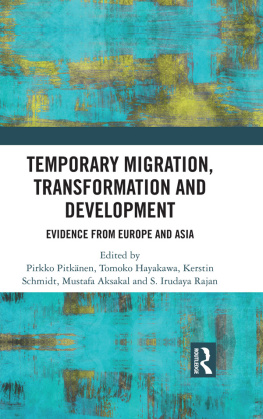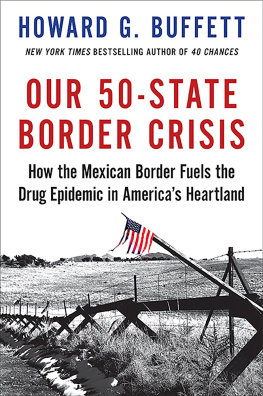Acknowledgments
This book is about how we collaborate to create realities we have as yet to imagine, and as I wrote it, it began to embody its central tenet in ways that I had not expected. It became something very different from what I had initially envisioned, in terms of both its form and significance in my life. It grew into an expression of the relationships, personal and intellectual, that supported this books development, and into an articulation of the quality of attention those relationships challenged me to cultivate.
Among the most significant of these was my relationship with Michael Piore. I thank him for being a teacher in the broadest sense of the term. From the beginning, he encouraged me to trust my instincts and explore ideas that were still only nebulous hunches, and showed by example that insight depends on compassion and patience. I also thank Richard Locke for his penetrating critique and his constructive advice; Paul Osterman for his fairness, his support, and his intellectual guidance; and Alice Amsden for her discerning comments and criticism, and for demonstrating that creativity often demands irreverence. I also extend my gratitude to Judith Tendler, Wanda Orlikowski, Pablo Boczkowski, Susan Slyomovics, and Richard Lester for challenging me with a few difficult and well-timed questions that caused me to reexamine assumptions of mine so deeply held that they had become invisible to me. Timothy Mitchell exhorted me to be ambitious and to walk boldly into whatever controversy the book might spark. Rogan Kersh generously shared his careful reflection on the books argument and structure, and provided advice that was keen but gentle on how to bring this book to completion. I am grateful to Ellen Schall for her steadfast support of this project.
I thank Janice Goldman, Sumila Gulyani, Monica Pinhanez, Sean Safford, Nichola Lowe, Janice Fine, Vicky Hattam, Ruth Milkman, Zeynep Gursel, Jennifer Brinkerhoff, and Jonathan Murdoch for reading sections of this book at various stages in my writing. Their perceptive comments improved the book immeasurably.
Two anonymous reviewers read the manuscript in its entirety. I thank them both for the care they took in evaluating the book, and for thoughtful and meticulous comments they provided me. The book is much stronger for their attention, and I very much appreciate their investment in this project.
I also thank many colleagues who generously shared their thoughtful comments and criticisms with me, especially Liesl Riddle, Kathleen Newland, Yevgeny Kutznetsov, Michael Clemens, Carlos Martinez, Sarah Kaplan, Karim Lakhani, Andrew Schrank, Roger Waldinger, and Devesh Kapur. I owe them all an intellectual debt.
The fieldwork on which this book rests was as collaborative as the process of reflection that spun its narrative thread. I am extremely grateful to the many people who took the time to speak with me, who went out of their way to help me understand local political and economic realities, and who guided me as I tried to reconstruct local and transnational histories. In Mexico, government officials in numerous municipal, state, and federal agencies generously took the time to talk with me and graciously opened their archives to me. I am grateful to them all, but I extend special thanks to Carlos Gonzalez Gutierrez, Elizabeth Chavolla, Pedro Barrios, Diana Alvarez, Dante Gomez, Samuel Delgado, and Placido Morales. I also express my warm gratitude to the migration studies group at the University of Zacatecas, especially to Rodolfo Garca Zamora, Raul Delgado Wise, and Miguel Moctezuma Longora; their reception and support of me during my stay in Zacatecas, and even after I left, stand out as a standard of academic and personal generosity. I also thank the many migrants and migrant activists who shared their experiences with me, y gracias a David para las buenas comidas. Brandie Maxwell collaborated with me on interviews in Guanajuato, and her cheerfulness made dusty trips to remote villages enjoyable. I also owe a special debt to Manuel Orozco, who invited me to participate in an early project on migration and development policy and allowed me to join him on a whirlwind trip through more than half a dozen Mexican states, enabling me to complete my initial case selection.
In Morocco, I received a gracious welcome from the vibrant community of scholars who study migration, including the Moroccan Association for the Study and Research of Migration (AMERM) and the National Institute for Applied Economics and Statistics (INSEA). I am also deeply indebted to several migrant organizations and activists in Morocco and in Europe for the openness and detail with which they shared their experiences and for the hospitality with which they received me. In particular, I thank Hassan Boussetta, Nouria Ouali, Youssef Haji, Jamal Lahoussain, Zakya Daoud, and especially Nadia Bentaleb and Jacques OuldAoudia (merci pour les conversations auprsdu feu). I also thank members of the Moroccan government who generously provided me with their frank reflections about policy changes, especially Nouzha Chekrouni, Mohammed Sajid, and the staff at the Hassan II Foundation (who also patiently helped me navigate the foundations archives). Special thanks also go to Jean-Pierre Garson of the Organization for Economic Cooperation and Development, who provided me with invaluable assistance in Paris and lifted my spirits with his unfailing sense of humor.
The research for this book was generously supported by grants from the Institute of Work and Employment Research at the Sloan School of Management at MIT, the Social Science Research Council, the Institute for International Education, and the Industrial Performance Center at MIT. I extend special thanks to Tom Kochan at MIT for authorizing a seed grant for exploratory research even before the direction of this project became clear. I express my gratitude to the Industrial Performance Center for providing me with a supportive space for writing. Anita Kafka and Richard Lester nurtured a culture of friendly intellectual exchange that transformed the Industrial Performance Centers office suite into a center for constructive personal and academic collaboration. New York Universitys International Center for Advanced Studies hosted workshops in which portions of this work were considered. I thank the participants for their intelligence, their perceptiveness, and their enthusiasm. I am grateful to the Social Science Research Council Book Fellowship, offered in partnership with Columbia University Press, for editorial support (many thanks to Adi Hovav) and for the window it provided onto the world of academic publishing. Peter Dimmock at Columbia University Press was especially encouraging.
Portions of chapter 5 were previously published in N. Iskander, Diaspora Networks for National Infrastructure: Rural Morocco, 19852005, in Diasporas and Development: Exploring the Potential, edited by J. M. Brinkerhoff (Washington, DC: Lynne Rienner Publishers, 2008); and in N. Iskander and N. Bentaleb, Assets, Agency, and Engagement in Community Driven Development, in From Clients to Citizens: Communities Changing the Course of Their Own Development, edited by A. Mathie and G. Cunningham (Rugby, UK: Practical Action Publishing, 2008); used with kind permission of both publishers.





